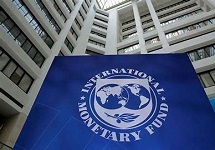Experts call for urgent financing for African countries to help them build resilience against financial, health and climate shocks and enhance economic growth.
The experts made the call during a one-day virtual workshop on Catalyzing Access to the IMF Resilience and Sustainability Trust (RST), organized by AfriCatalyst and the Economic Commission for Africa (ECA).
A combination of shocks such as climate change, health, food and fuel, effects of Russia-Ukraine war and constricted global financial conditions have increased the gap and debt vulnerability of Africa’s development financing, and are shocks that threaten to reverse two decades of development progress in Africa according to experts.
Adam Elhiraika ECA Director of Macroeconomics and Governance Division stated that global recessions that occur in the past six decades led to a rise in global government debt and as a result many African countries increased their public debt out of which bulk of that public debt was incurred between 2020 and 2021 by the time countries required to fight the impacts of Covid-19 and how countries were struggling with high debt and in servicing it which was hampering poverty reduction and recovery from shocks.
“Despite national and international efforts, an increasing number of countries on the continent continue to struggle with substantial debt burdens and servicing their debt, with some already in debt distress or at high risk of debt distress,” Mr. Elhiraika said.
AfriCatalyst an Africa based global development advisory firm, Founder and CEO, Daouda Sembene said that with the support of the Bill & Melinda Gates Foundation, AfriCatalyst was boosting evidence generation and technical advisory support for African policymakers to promote access of Sub-Saharan African countries to IMF financing under the RST.
He also noted about the high demand for climate financing and the limited available resources. Currently the IMF is seeking $40 billion for the RST but only raised $26 billion effectively.
Underlining the need for additional resources for Africa, Mr. Sembene said, that the cumulated climate finance of 52 African countries under the nationally determined contributions was estimated at $2.3 trillion.
Ms. Fenohasina Rakotondrazaka Maret, Senior Advisor, AfriCatalyst, said access to this financing will be granted based on the nations’ reform strength and debt sustainability. The concessional loans have a 20-year maturity and a ten-and-a-half-year grace period.
Currently the only African country with an RSF supported program approved by the IMF is Rwanda and received US$ 319 million for climate change programming.
